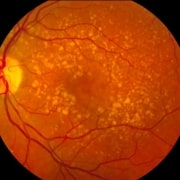3 Facts to Know About ERG Testing
ERG testing in New Albany, MS refers to electroretinography, and it’s used to monitor retinol disorders. This critical part of the eye is the link between what you see with your eyes and what your brain perceives. Without a functioning retina, you can end up misinterpreting your surroundings. In the worst-case scenario, you can go entirely blind. If you’re interested in how it works and why you might need it, we’ll look at three key facts below.
1. ERG Testing Focuses on Functionality
Traditional testing focuses more on finding abnormalities of the retina. In other words, an eye doctor in New Albany might learn about what a normal retina looks like and then use testing to spot abnormalities that could point to specific disorders, like diabetic retinopathy and age-related macular degeneration. ERG testing focuses more on the function of the retina, understanding it from the inside out so there’s more insight into how these conditions first develop and then progress over time.
2. ERG Testing Is Not Painful
ERG testing will put electrodes on or near your eye and then record how your retina responds to flashes of light. The test measures both the speed and the strength of your response, and does not cause the patient any pain. You can expect the doctor to use numbing eye drops, though, to keep discomfort to a bare minimum. The risks of this procedure are virtually non-existent.
3. ERG Testing May Be More Accurate
You may wonder if you have to spring for an ERG test, especially if you haven’t heard of this procedure before. Ultimately, it depends on the patient. For some, the disorder will be painfully obvious to the doctor, with or without a special test. In more complex cases, though, ERG testing may be the only thing that helps in early detection. For many ocular disorders, the sooner the eye doctor can catch the problem, the more likely they’ll be to treat it.
At Weeden Eye Clinic we can tell you more about the accuracy of ERG testing, and how our testing approaches retina disorders in a fundamentally new way. Whether you have a family history of retina disorders or not, we can help you get answers before it’s too late.




